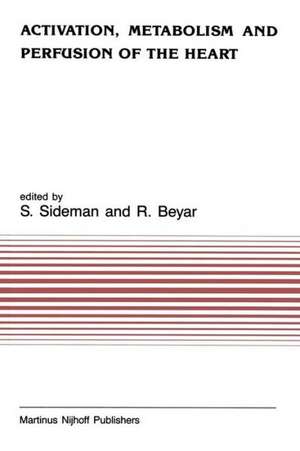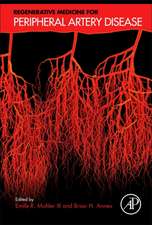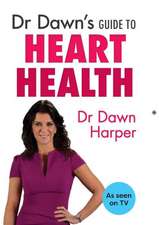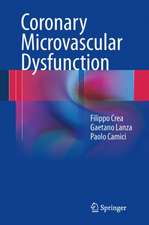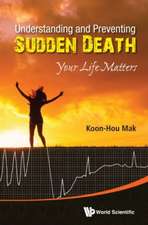Activation, Metabolism and Perfusion of the Heart: Simulation and experimental models: Developments in Cardiovascular Medicine, cartea 70
Editat de S. Sideman, Rafael Beyaren Limba Engleză Paperback – 12 oct 2011
Din seria Developments in Cardiovascular Medicine
- 5%
 Preț: 1484.53 lei
Preț: 1484.53 lei - 5%
 Preț: 375.17 lei
Preț: 375.17 lei - 5%
 Preț: 354.10 lei
Preț: 354.10 lei - 5%
 Preț: 1419.03 lei
Preț: 1419.03 lei - 5%
 Preț: 376.43 lei
Preț: 376.43 lei - 5%
 Preț: 1098.27 lei
Preț: 1098.27 lei - 5%
 Preț: 1438.38 lei
Preț: 1438.38 lei - 5%
 Preț: 376.78 lei
Preț: 376.78 lei - 5%
 Preț: 368.37 lei
Preț: 368.37 lei - 5%
 Preț: 380.25 lei
Preț: 380.25 lei - 5%
 Preț: 2117.58 lei
Preț: 2117.58 lei - 5%
 Preț: 367.28 lei
Preț: 367.28 lei - 5%
 Preț: 366.56 lei
Preț: 366.56 lei - 5%
 Preț: 371.10 lei
Preț: 371.10 lei - 5%
 Preț: 370.94 lei
Preț: 370.94 lei - 5%
 Preț: 783.18 lei
Preț: 783.18 lei - 5%
 Preț: 713.18 lei
Preț: 713.18 lei - 5%
 Preț: 1098.27 lei
Preț: 1098.27 lei - 5%
 Preț: 375.49 lei
Preț: 375.49 lei - 5%
 Preț: 373.47 lei
Preț: 373.47 lei - 5%
 Preț: 723.93 lei
Preț: 723.93 lei - 5%
 Preț: 1104.13 lei
Preț: 1104.13 lei - 5%
 Preț: 2117.20 lei
Preț: 2117.20 lei - 5%
 Preț: 716.09 lei
Preț: 716.09 lei - 5%
 Preț: 372.03 lei
Preț: 372.03 lei - 5%
 Preț: 722.33 lei
Preț: 722.33 lei - 5%
 Preț: 660.07 lei
Preț: 660.07 lei - 5%
 Preț: 375.34 lei
Preț: 375.34 lei - 5%
 Preț: 1423.22 lei
Preț: 1423.22 lei - 5%
 Preț: 715.35 lei
Preț: 715.35 lei - 5%
 Preț: 790.69 lei
Preț: 790.69 lei - 5%
 Preț: 720.68 lei
Preț: 720.68 lei - 5%
 Preț: 3185.49 lei
Preț: 3185.49 lei - 5%
 Preț: 1418.27 lei
Preț: 1418.27 lei - 5%
 Preț: 784.64 lei
Preț: 784.64 lei - 5%
 Preț: 714.63 lei
Preț: 714.63 lei - 5%
 Preț: 370.74 lei
Preț: 370.74 lei - 5%
 Preț: 376.22 lei
Preț: 376.22 lei - 5%
 Preț: 660.85 lei
Preț: 660.85 lei - 5%
 Preț: 368.37 lei
Preț: 368.37 lei
Preț: 394.52 lei
Preț vechi: 415.29 lei
-5% Nou
Puncte Express: 592
Preț estimativ în valută:
75.50€ • 78.53$ • 62.33£
75.50€ • 78.53$ • 62.33£
Carte tipărită la comandă
Livrare economică 15-29 aprilie
Preluare comenzi: 021 569.72.76
Specificații
ISBN-13: 9789401079877
ISBN-10: 9401079870
Pagini: 768
Ilustrații: 725 p.
Dimensiuni: 155 x 235 x 40 mm
Greutate: 1.06 kg
Ediția:Softcover reprint of the original 1st ed. 1987
Editura: SPRINGER NETHERLANDS
Colecția Springer
Seria Developments in Cardiovascular Medicine
Locul publicării:Dordrecht, Netherlands
ISBN-10: 9401079870
Pagini: 768
Ilustrații: 725 p.
Dimensiuni: 155 x 235 x 40 mm
Greutate: 1.06 kg
Ediția:Softcover reprint of the original 1st ed. 1987
Editura: SPRINGER NETHERLANDS
Colecția Springer
Seria Developments in Cardiovascular Medicine
Locul publicării:Dordrecht, Netherlands
Public țintă
ResearchCuprins
Electrical activation and propagation.- 1. Use of computer simulations for combined experimental-theoretical study of anisotropic discontinuous propagation at a microscopic level in cardiac muscle.- 2. The role of the interstitial space in electrical models of cardiac sources.- 3. Parasympathetic control of the SA node cell in rabbit heart – a model.- 4. Effects of the discrete cellular structure on electrical propagation in cardiac tissue.- 5. Electrical field model for electric interactions between myocardial cells.- 6. The role of distributed conduction velocities in simulated epicardial activation maps.- 7. Effects of anisotropy on functional reentrant circuits: preliminary results of computer simulation studies.- 8. Interaction of oscillatory currents and steady-state membrane conductance in isolated cardiac myocytes: experimental description and preliminary modeling of syncytial effects.- 9. General discussion.- Electrical and mechanical interactions.- 10. Influence of pacing site on ventricular mechanics.- 11. Effect of alterations of the left ventricular activation sequence on left ventricular performance.- 12. Effect of the thyroid state on ventricular action potential characterictics in the mammalian heart.- 13. Mechano-electric coupling in myocardium and its possible role in ischaemic arrhythmia.- 14. Tetanization of intact hearts: a new strategy for studying the response of the contractile proteins to calcium.- 15. Modulation properties of myocardial contractile proteins.- 16. Insight into excitation-contraction coupling of heart derived from studies of the force-interval relationship.- 17. Model of Ca release mechanism from the sarcoplasmic reticulum: Ca-mediated activation, inactivation and reactivation.- Microstructure and macroscale mechanics.- 18. Athree dimensional constructive law for the passive myocardium based on a microstructural approach.- 19. 3-D simulation of left ventricular contraction combining myocardial mechanics and electrical activation.- 20. The mechanical effects of the pericardium on the left ventricle.- 21. Conversion of fiber stress to global left ventricular pump work.- Micro to macro coronary circulation.- 22. An analysis of a vascular arborization model for the microcirculation.- 23. Delineating coronary hemodynamic mechanisms by computer simulation.- 24. Distensibility of microvasculature and its consequences on coronary arterial and venous flow.- 25. Impedance to coronary flow.- 26. Intramyocardial blood volume – implications for analysis of myocardial mechanical characteristics via in vivo imaging of the heart.- 27. The effect of wall forces on coronary flow.- 28. Experimental validation studies related to clinical applications of cine computed tomography.- Dysfunction of the diseased ventricle: mechanical and metabolic aspects.- 29. Regional ventricular function in myocardial ischemia.- 30. Simulation of the mechanics of an infarcted left ventricle.- 31. Nonischemic dysfunction at the lateral margins of ischemic myocardium.- 32. Assisted circulation as a tool for the stuy of cardiac models and cardiac performance.- 33. Modulation of coronary autoregulatory responses.- 34. Is stunned myocardium energy deficient?.- 35. Concentric left ventricular hypertrophy: a simulation study of mechanics related to transmural oxygen demand and perfusion.- 36. Coronary reserves in myocardial hypertrophy.- Basic phenomena in transport and metabolism.- 37. Making mathematical descriptions of metabolic reaction networks manageable.- 38. Integrated phenomenology of transport, permeation, and metabolicreactions in the heart.- 39. Transport between myocardial capillaries and cardiac lymphatics.- 40. Disturbances in myocardial lipid homeostasis during ischemia and reperfusion.- 41. Heat transfer and temperature profiles during ischemia and infarction in the left ventricular wall.- Clinical implications.- 42. Longterm assessment and management of chronic cardiac failure.- 43. Acute and chronic cardiac failure: the oxygen transport system gone awry.- General discussion.- 44. Interactions: mechanics, metabolism and perfusion.- 45. Relating models to experiments.- Concluding remarks.- Index of subjects.
